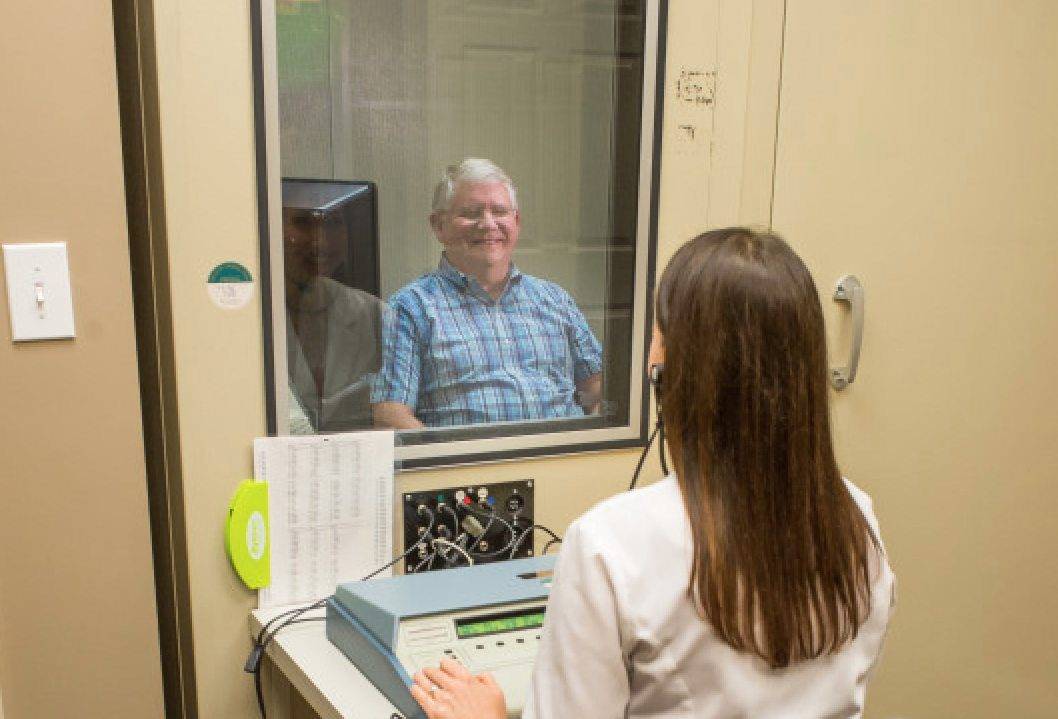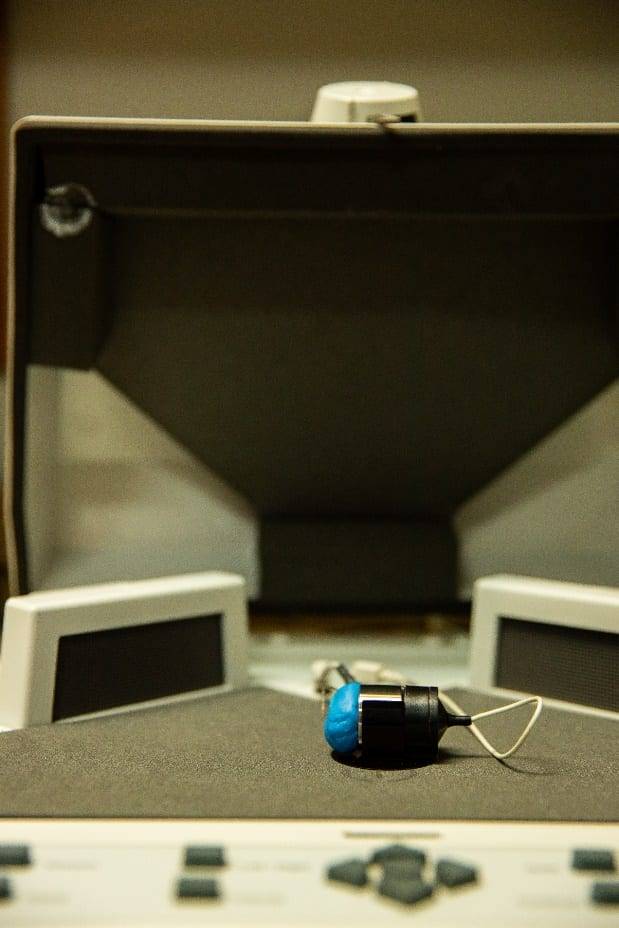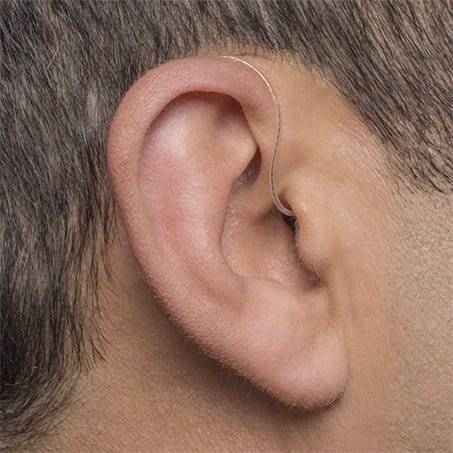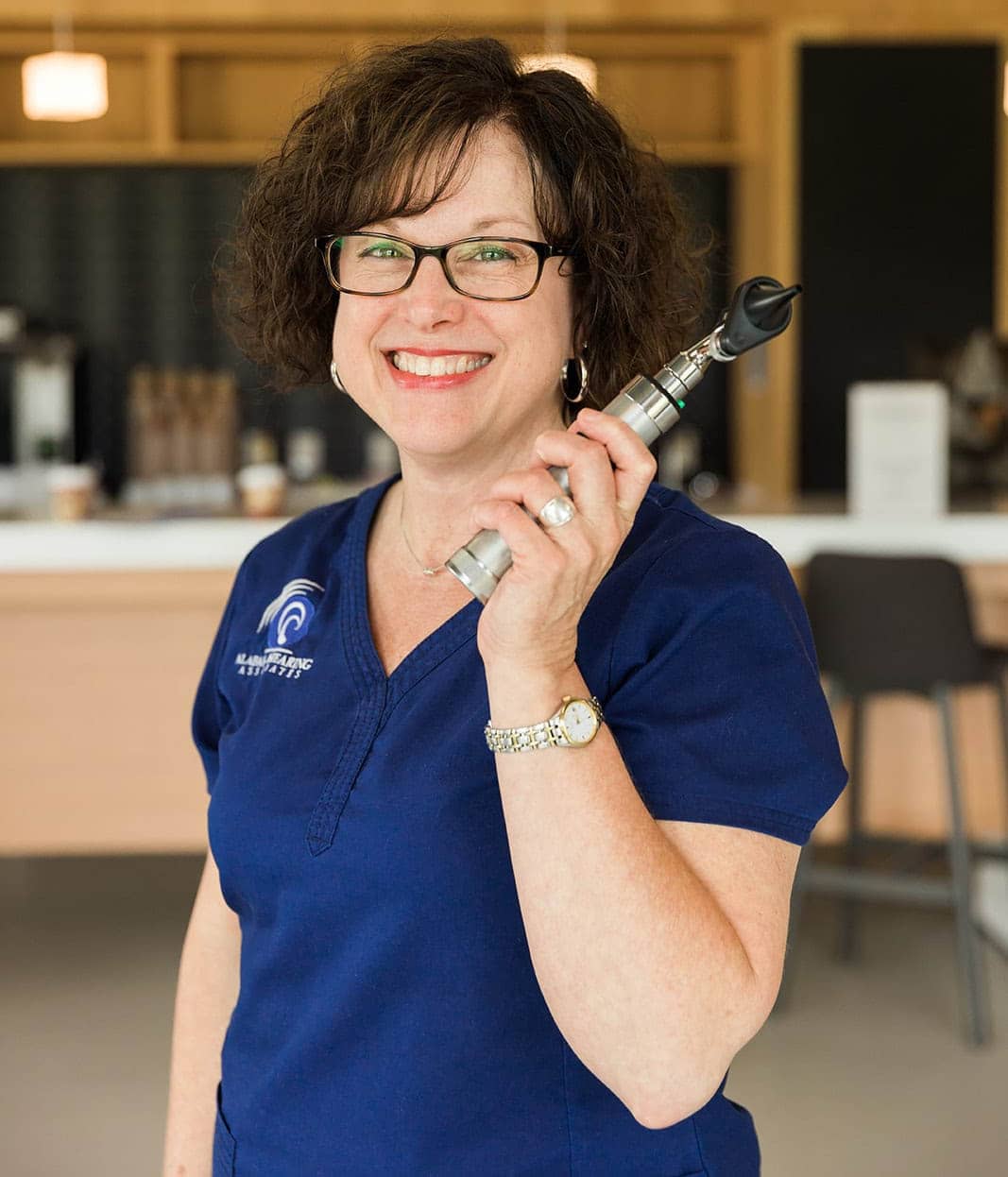Custom Hearing Protection

Most of us associate hearing loss with aging, but not everyone knows that noise-induced hearing loss is the second leading cause of hearing deficiency in adults. The culprit for both types is the degeneration of microscopic hair cells in your inner ear. While age-related damage is often a fact of life due to normal wear and tear on your hair cells, noise-induced hearing loss is completely preventable with the right protection.
What is the “right protection?” It may surprise you to learn that hearing protection is not one-size-fits-all, but varies with individual needs.
Audiologists at Alabama Hearing Associates will work with you to determine the appropriate custom hearing protection for your specific noisy environment.

Types of Hearing Protection
Hearing protection is available in a variety of different types and styles. The two main categories of hearing protection are passive and active. While passive protection simply blocks all sound waves from making it to your ear canal, active protection uses technology to allow some sounds in, while blocking others.
Ready-made hearing protection can be found at local stores and does not require a fitting to wear, but it does have some disadvantages in both protection and comfort. Custom passive hearing protection is more advanced and often allows the wearer to hear some sounds – such as conversation – but not the level of noise that will cause damage to the ear. This type of hearing protection is still generally inexpensive, yet it is quite effective.
Custom active hearing protection can be battery powered, rechargeable, or plug in to an energy source. It is more advanced – and therefore more costly – but allows the wearer to fully enjoy their activity, such as hunting or playing music, while still protecting their ears.
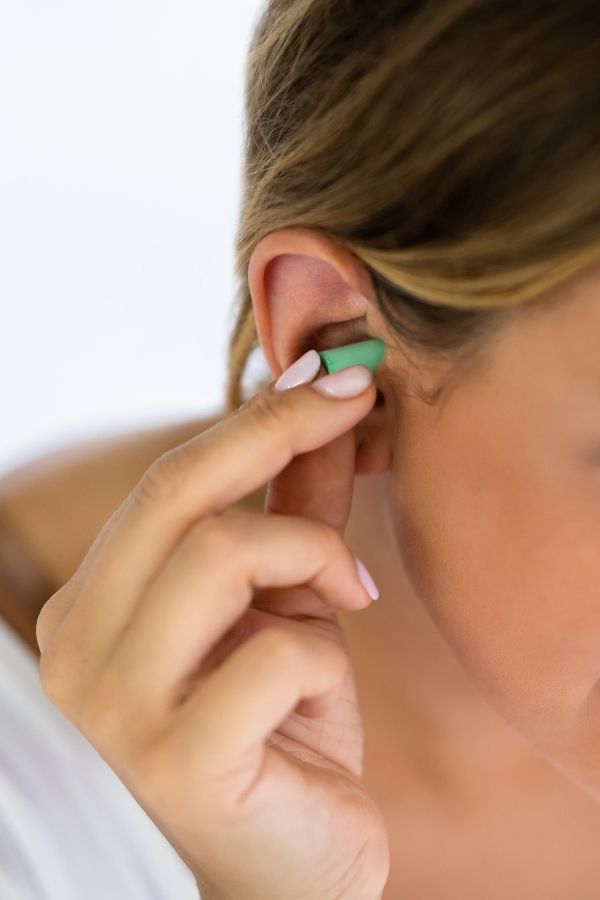
Ready-made Hearing Protection
Ready-made hearing protection is not individualized for a specific person. Instead, these devices are designed for the masses and can usually be picked up at a large retail store. They are easily accessible, which is an advantage, but may not be comfortable for long periods of wear. In addition, they function by reducing all frequencies of sounds, so the things you may still want to hear – like someone talking to you – may be difficult to hear.
Earplugs
Earplugs are a passive type of hearing protection inserted right in your ear canal to block out sound. Most wearers find them comfortable, and it is possible to add earmuffs over the top for added protection. Earplugs are small and easy to keep on you at all times in your pocket, but that also means they can easily be misplaced. It is also important to keep earplugs clean to reduce any chance of earwax buildup or getting an ear infection.
Semi-insert earplugs
Semi-insert earplugs have conical tips that are pushed into the ear along with a tight fitting head band that maintains an effective seal. These may be uncomfortable if worn for long periods of time and are often best for people that will only be entering a noisy area intermittently. Overall, semi-insert earplugs are not as well-rated for noise reduction as earplugs or earmuffs, and if worn incorrectly, the protection level is further reduced.
Earmuffs
Earmuffs are easily accessible, simple to wear, and offer a one-size-fits-all approach. Since they aren’t inserted into the ear, they don’t cause discomfort or irritation for someone with an ear infection or sensitive ears. They are also durable, making them a long-lasting choice in ear protection. However, they are not comfortable to wear all day, especially in a hot working environment, and are more pricey than earplugs. Additionally, they may not provide the appropriate level of protection if the seal is interfered with by glasses or even hair. The cups need to cover the ears entirely to create the seal that blocks out the sound.
Custom Passive Hearing Protection
Hearing protection is only helpful if it is actually worn. In many cases, people who use ready-made hearing protection remove the devices so they can have a conversation with a co-worker or family member. Once removed, damage can occur because the ear is completely unprotected. Custom passive hearing protection helps prevent this issue because the wearer is able to hear conversations, while loud sounds are simultaneously dampened. Often this type of hearing protection is desirable because it is not expensive but is still quite effective.
Custom Ear Plugs
Custom ear plugs are made by creating a mold of your ear, resulting in a device that is a perfect fit for you. This ensures they will feel secure in your ear and provide you with an optimum level of noise reduction. Our audiologists can take an impression of your ear in our office and send it to a manufacturer, who will fabricate ear plugs specifically for you. They will be long-lasting and comfortable, allowing you to wear them daily without issue.
Impulse Filter Ear Plugs
Impulse filter ear plugs provide protection from a short, loud noise. These were originally designed for military members and have the benefit of protecting your ear while still allowing you to hear people around you speaking. They can be used not only by avid hunters, but also by people who work with loud tools, such as nail guns or drop hammers.
Sleep Plugs
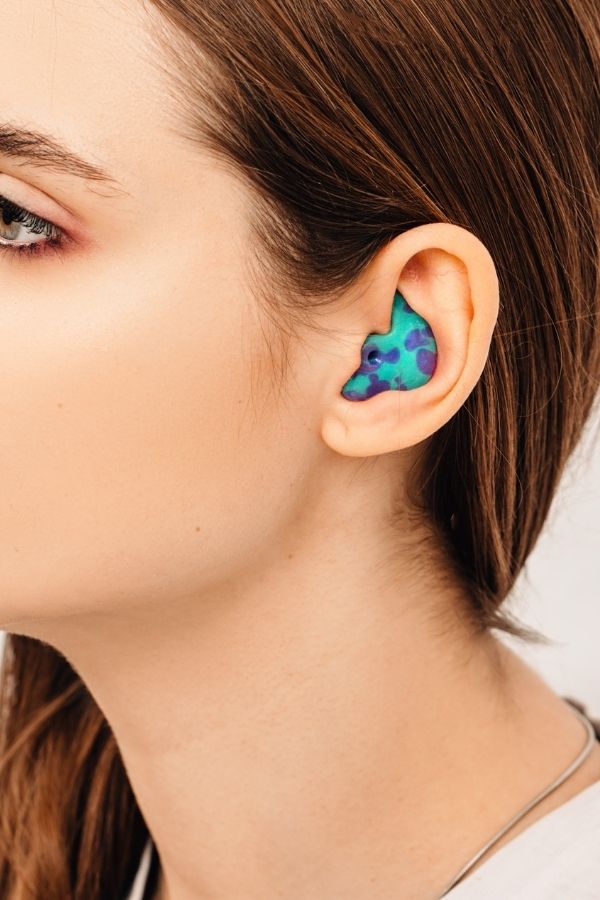
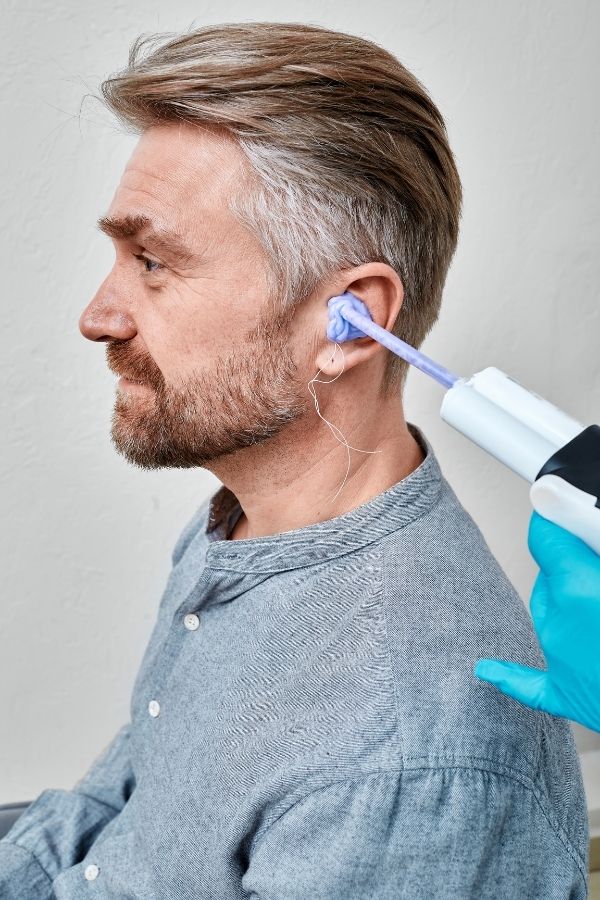
Custom Active Hearing Protection
Active hearing protection can be battery-powered, rechargeable, or plug into a power source, and can be customized with your specific needs in mind. Although more costly than alternative hearing protection options, professional musicians and avid hunters often prefer this type of hearing protection because it utilizes technology to allow some sounds into your ear, while blocking out others. Our audiologists can help you select the right custom active hearing protection for your specific noisy activity of interest!
In-Ear Monitors
Musicians and sound engineers commonly use in-ear monitors. These devices are plugged into the sound system, allowing the musician to clearly hear the music coming out of the speakers, yet they provide protection from the loud noise of the concert. This is advantageous over ear plugs that muffle all sounds and therefore don’t allow the high-quality music to enter the ear.
SoundGear
SoundGear devices feature advanced technology that uses microphones to pick up and process external sounds while simultaneously protecting the user’s hearing by reducing or suppressing harmful noise levels, like gunshots or loud machinery.
SoundGear products typically come in the form of in-ear or over-ear electronic earplugs or earmuffs. They allow wearers to hear ambient sounds at safe and comfortable levels while automatically reducing or blocking out loud and potentially damaging noises.
Some SoundGear models may also offer customization options, like adjustable volume settings and noise filtering, to cater to individual preferences and specific applications.
Earmuffs
Earmuffs are easily accessible, simple to wear, and offer a one-size-fits-all approach. Since they aren’t inserted into the ear, they don’t cause discomfort or irritation for someone with an ear infection or sensitive ears. They are also durable, making them a long-lasting choice in ear protection. However, they are not comfortable to wear all day, especially in a hot working environment, and are more pricey than earplugs. Additionally, they may not provide the appropriate level of protection if the seal is interfered with by glasses or even hair. The cups need to cover the ears entirely to create the seal that blocks out the sound.
Hearing Protection For All Lifestyles and Activities
Millions of people work in loud environments where they are exposed to dangerous decibel levels and aren’t able to request a reduction in noise. Many others enjoy hobbies, such as hunting, swimming, surfing, or attending concerts, where the potential of damage to their ears is high.
If you fall into one of these categories, be aware that repeated exposure to loud noise is a recipe for irreversible hearing loss. A simple answer is available: wear appropriate hearing protection any time you may be exposed to damaging noise levels. Anything above 85 decibels is considered dangerous for your ear.
Hearing protection is rated based on noise level reduction, also known as NRR (Noise Reduction Rating). The higher the NRR, the more protection is provided.
Yet, it may not be best to just purchase the hearing protection with the highest NRR, because being completely unable to hear may impact your ability to participate in the activity. Hunters want to hear noises in the woods, and workers may need to have a conversation with others on the job.
Identifying the right hearing protection for your lifestyle and activity is imperative for protecting your hearing, while still providing you the ability to participate fully.
When you come in for a hearing protection consultation at Alabama Hearing Associates, our audiologists will inquire about when you intend to wear the hearing protection so they can assist you in identifying which device would be most suitable for you.
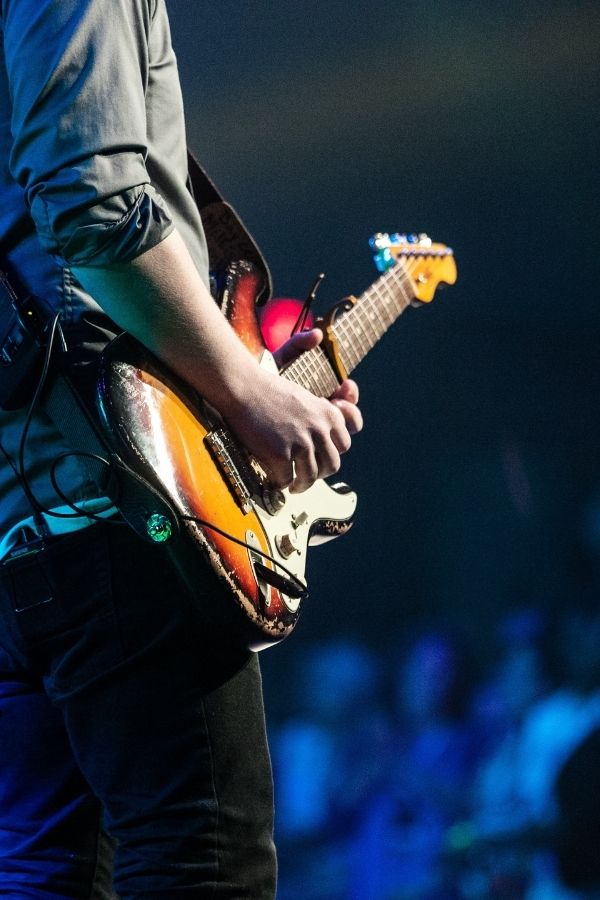
HUNTING
Gunshots are typically 120-130 decibels, which is well above the 85 decibel limit known to cause permanent hearing damage. A variety of hearing protection options are available for hunters to prevent the high-frequency hearing loss that can be caused by repeated exposure to firearm discharge. Custom-made ear molds can be designed with filters that will allow soft sounds to pass through, but reduce the impact of loud sounds, such as gunfire. Another option is electronic hearing protection, which has the advantage of making the soft noises of the woods sound louder but then shuts off when noisy gunfire occurs. The advantage of these devices is they don’t need to be removed for hunters to talk to each other or listen for animals.
MUSIC
If you are a professional musician or just a frequent concert attendee, you may want to consider hearing protection so your long-term hearing health isn’t degraded. Custom earplugs are worthwhile because they will provide you with a quality fit, are durable, and have a long lifespan. They allow the high-quality music you want to listen to in, while protecting you from excessive noise that causes damage. This is better than disposable ear plugs, which will just block all sound uniformly and might make the music sound muffled.
SWIMMING
Swimmers who repeatedly experience swimmer’s ear may benefit from custom swim ear plugs. Although over-the-counter ear plugs are available to purchase at retailers, the custom version will fit your ears perfectly because they are made using impressions of your ears. These ear plugs are durable and therefore have a long lifespan. Since they are fitted to you, they are both comfortable and seal the water out of your ear canals.
SLEEP
Disposable ear plugs may not provide the level of noise reduction you need to sleep well, especially if you have a partner that snores. In addition, you need the utmost comfort in order to sleep soundly all night. Ordering custom molded sleeping ear plugs provides a high noise reduction rating, a low profile for comfort – and most importantly – the ability to have uninterrupted sleep every single night.
OCCUPATIONAL
When it is not possible for you to reduce the noise in your work environment, occupational hearing protection is essential. Hazardous noise levels can permanently damage your hearing. Fortunately, a variety of options exist to protect workers, while still allowing them to communicate. In order for occupational hearing protection to be effective, it must be worn at all times. Therefore, comfort and ease of use should be two primary considerations when making your selection. The goal is to lower the noise hazard level to 85 A-weighted decibels (dBA) or below.
Frequently Asked Questions about Custom Ear Protection
What are custom ear molds used for?
Custom ear molds are used for both hearing protection and hearing aids. Those that are purchased for protection can be used to reduce noise exposure, or to physically protect the ear from water when swimming or surfing. Custom molds have a higher Noise Reduction Rating than disposable ear plugs. Ear molds that are used for hearing aids are known to provide high-quality sound because they fit snugly in the ear and reduce feedback.
How are custom ear molds made?
Just as no two fingerprints are alike, each individual has a different ear shape. Therefore, the first step in making custom ear molds is to obtain a cast of your ear canal, using impression material similar to wax. The process does not hurt but may feel a little odd. An audiologist will pour the quick-setting material into your ear canal and the outer bowl-shaped part of your ear and leave it for a couple of minutes. Once removed, the hardened impression material will be mailed to a speciality manufacturer who will create your custom ear mold(s).
What are the different types of earplugs?
There are three main types of disposable earplugs: formable foam earplugs, pre-molded earplugs, and canal caps. Foam ear plugs expand once they are inserted, allowing them to fit your ear canal well. They are meant for one-time use. Pre-molded earplugs are beneficial at concerts because they allow you to hear the music, but protect your ear by evenly decreasing the volume across different pitches. Canal caps use a band to apply pressure, helping seal the earplugs.
How long do custom-made earplugs last?
Custom-made earplugs do not have an expiration date or specified lifespan. Over time, you may notice changes in color or an overall degradation, indicating it is time to speak with your audiologist about getting a replacement. Your ear shape may also change with time, which will impact the fit of the ear plug. If you find your ear plug is often coming out of your ear on its own, you should contact our audiologists to see if a new ear mold is needed.
Custom Hearing Protection in North Alabama
There may not be a lot we can do to avoid age-related hearing loss, but protecting your hearing from loud noises is entirely within your control! At Alabama Hearing Associates, we always recommend our patients either remove themselves from noisy environments or wear appropriate hearing protection.
The beauty of custom hearing protection is that it is manufactured for your specific ear shape, making it comfortable and easy to wear, while simultaneously providing optimal noise reduction.
We are here to help you select the appropriate hearing protection for your lifestyle so that you can engage in the activities you enjoy without causing harm to your hearing, and we can offer you a hearing protection solution for just about any activity you engage in (even a bed partner who snores incessantly!).
Alabama Hearing Associates provides custom hearing protection in North Alabama. Call us to schedule an appointment with our expert audiologists and be fitted with custom hearing protection in Madison and Huntsville, AL.
It is often the small things that hold us back from making a decision. That’s why we are on hand to help.
Simply complete the Callback form to request a friendly, no-obligation conversation with one of our helpful team members.
Don’t want to wait? Call us at: (256) 319-4327

